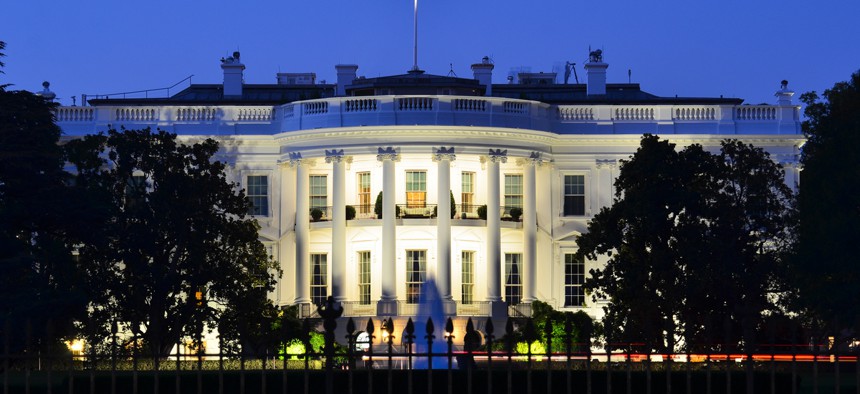White House Cuts Cyber Coordinator Role But Lawmakers Say Not So Fast

Orhan Cam/Shutterstock.com
House Democrats charged National Security Adviser John Bolton’s move lowers the White House’s cyber expertise as threats are increasing.
Lawmakers pushed back Wednesday on news that National Security Adviser John Bolton has decided to eliminate the White House cybersecurity coordinator role, which was recently held by Rob Joyce.
Within hours of the news breaking, Reps. Jim Langevin, D-R.I., and Ted Lieu, D-Calif., introduced legislation that would reinstate the coordinator’s office and give him or her explicit power to review federal agency information security programs and budgets and to make recommendations for any changes to the president.
The bill boasts 10 additional Democratic cosponsors but no Republicans.
A White House official confirmed Bolton’s plans to terminate the cyber coordinator’s position to Nextgov Tuesday evening. The plan was first reported by Politico.
Lieu and Langevin’s bill would elevate the cyber coordinator to a Senate-confirmed position and place the leader in charge of a National Office for Cyberspace inside the Executive Office of the President. Previously the cyber coordinator was a deputy to the White House Homeland Security Adviser.
Rob Joyce, who held the cyber coordinator’s position until Friday, left the post to return to the National Security Agency. He announced that plan soon after Bolton’s arrival as National Security Adviser and after the resignation of Homeland Security Adviser Tom Bossert.
“We need a designated expert to harmonize cyber policy across the many agencies in government with responsibility in this space,” Langevin said in a statement. “We also need clear communication of administration positions on cybersecurity challenges, whether during major incidents or when establishing norms of responsible state behavior in cyberspace.”
Lieu called Bolton’s decision to eliminate the cyber coordinator position “outrageous, especially given that we’re facing more hostile threats from foreign adversaries than ever before.”
House Homeland Security ranking member Bennie Thompson, D-Miss., charged that Bolton was “wreaking havoc on the National Security Council,” adding that “there is no logical reason to eliminate this senior position and reduce the already degraded level of cyber expertise at the White House.”
It’s unclear how widely Bolton discussed his plans with government cyber leaders. Homeland Security Secretary Kirstjen Nielsen told senators at an oversight hearing Tuesday afternoon that she had not discussed the plan with Bolton, though they had discussed cyber concerns related to the day’s primary elections.
The cyber coordinator position was launched under the Obama administration in 2009 and first filled by longtime government official Howard Schmidt. The post was later filled by Michael Daniel, who played a leading role in responding to Russian efforts to undermine the 2016 election.
The White House post is the second major cyber role scuttled under the Trump administration. Former Secretary of State Rex Tillerson shuttered the State Department Cyber Coordinator’s office last year, but the position was later reinstituted in a slightly different form after severe criticism from Congress.
Legislation to elevate the State Department post and to make it permanent passed the House in January. The Senate is considering similar legislation.






